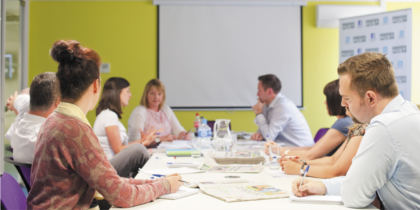
January 9, 2014, by Jemma Utley
Expert insight into working in PR
By Dana Corson, Account Director, Proactive International PR
PR professionals are known to be the masters of brand disasters, ensuring that their clients survive scandal. Since the rise of social media, public opinion has been more high-profile than ever before, with customer responses often making the news. PR works to ensure that, that opinion is successfully managed through a blend of online and traditional PR, which includes utilising press releases, online publications, social networking, TV and newspapers.
What is the function of social media, when it comes to building a brand identity, in a long-term campaign and when reacting to negative press?
Social media is massively important when it comes to building brand identity, particularly as more and more people engage with social media channels, such as Facebook, Twitter, YouTube and LinkedIn. It enables you to interact directly with your key audiences as well as raising awareness on a larger scale. In PR this is massively important as it can often lead to instant results, plus these channels are news hubs and act as a support mechanism for building relationships with the media and industry as a whole.
For those embarking on a social media campaign it’s worth thinking about what channels are available and deciding if they will work. For example, Facebook works incredibly well for some brands, however not so well for others. Also, it’s important to strategically build social media into a campaign, keeping activity constant and consistent, as this will help strengthen the longevity of the brand.
The beauty of social media is that it’s in real-time and when it comes to reacting to negative press, it means you can deal with a situation immediately. It may not necessarily rectify things, but it will certainly help control any damage and help get your message to the right people instantly.
The Top 10 Corporate Social Media Disasters
When recruiting, are you looking for students with a particular degree?
No, we don’t ask for a particular degree. For us it’s all about the person and their personality, rather than the degree they hold. We look for people that are career-minded, ambitious and have the ability to learn key skills.
Getting a graduate job in marketing, advertising and PR
How can applicants effectively demonstrate their commercial awareness of PR?
The best way for applicants to show their awareness of PR is by keeping up to date with news. A key skill in PR is ‘hooking’ into the news agenda, where we link a client campaign with a topical news story, in order to generate a story and attract our media targets. It’s also worth reading PR-related magazines and outlets, such as PR Week, as this will help an applicant understand PR and also helps with generating ideas.
What are the pros and cons of working in PR?
This is a tough question, and one that I’m sure everyone answers very differently. For me the pros totally outweigh the cons – PR offers great career potential, no two days are ever the same in the office, and you have the opportunity to be creative. On a more personal level, I really enjoy the client management side of things, plus my PR career has taken me all over the world!
Next steps with the Careers and Employability Service:
- Got more questions about careers in PR? Why not come to our Advertising, Marketing and PR event on 25 February and ask our board of industry experts?
- If you’re ready to apply but need some advice on the process, or some tips on sources of vacancies, then book an appointment with us
- Look for PR vacancies on My Career and save your job search as an email alert to get new vacancies sent to your inbox
No comments yet, fill out a comment to be the first

Leave a Reply